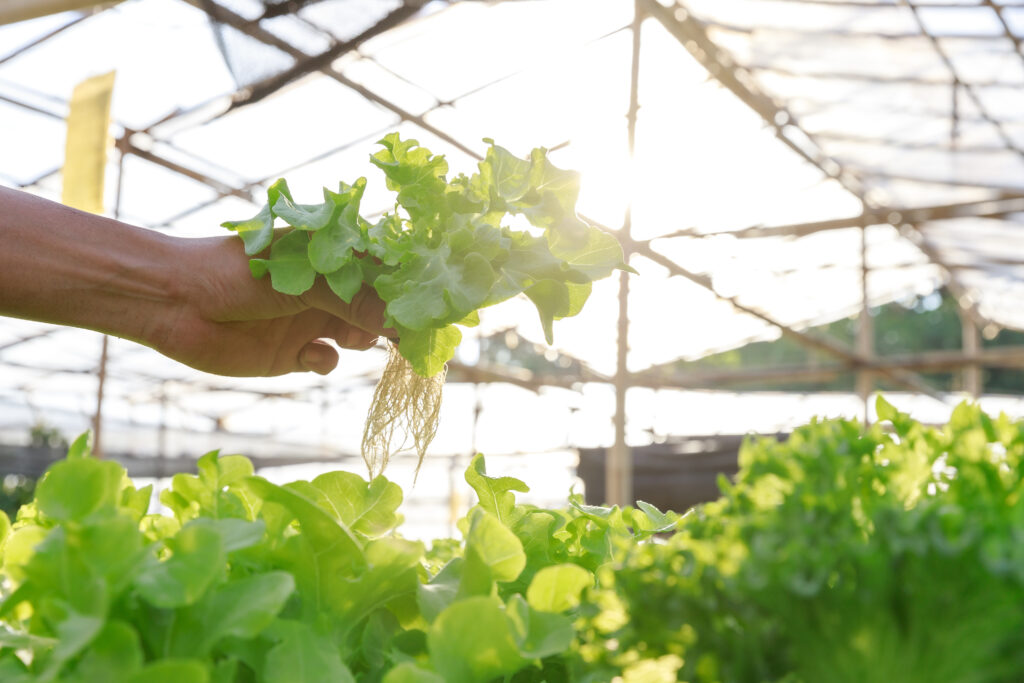Debye Unveils Feasibility Project for Direct Nitrogen Capture Technology
Swindon, February 29, 2024 – Debye Ltd., in collaboration with the Agri-Tech Centres, announces a feasibility project to trial its direct nitrogen capture technology, which simulates lightning’s ability to capture nitrogen in the form of nitrates.
The 18-month feasibility R&D project will take place on lettuce crops in Agri-Tech Centre CHAP’s vertical farming facility at Stockbridge, with fellow Centre Agri-EPI providing project management and life-cycle analysis, measuring the product’s environmental and economical sustainability at each stage of its development. The objective is to develop a one-kilowatt proof-of-concept prototype, to quantify and compare crop yields and post-harvest properties for standard nitrogen fertiliser and fertiliser produced by Debye Ltd.’s machine and to determine its commercial viability. If the trial is successful, Debye could undertake small-scale pilot projects on a farm setting within three years, subject to funding. The project is funded by Innovate UK and the Biotechnology and Biological Sciences Research Council’s Novel low-emission food production systems: Feasibility studies competition.
Dr. Burak Karadag, chief technology officer of Debye Ltd, said: “Fertiliser is critical to global food security, but current production methods cause environmental harm and are subject to market disruption. “Our technology harnesses nature’s own elegant solution: lightning strikes water with such energy that it breaks apart atmospheric nitrogen molecules, creating nitrogen dioxide, which is soluble in water and readily absorbed by plants. Our technology replicates these principles using only air, water and electricity.
Farmers rely mostly on ammonia-based fertiliser, whose economic model relies on mid- to large-scale production using natural gas and with well-documented negative effects on air, soil and water quality. Manufacturers are trying to move to green hydrogen reduce the fertiliser’s carbon footprint, but local, renewably powered direct nitrogen capture technology could make it a near zero-emission process, locally and securely available and with far better soil health outcomes. “
Dr. Harry Langford, Innovation Network Lead at CHAP, said: “Fertilisers are critical to secure food production, but economic and environmental concerns are driving a renewed focus on both diversification in practice, towards alternative fertiliser types, and technological innovation, to enhance production and application efficiency.
Debye envisage modular and containerised systems sited on farms or hubs, giving farmers on-the-spot or local supply of nitrate-based fertiliser using only air, water and electricity and we are delighted to be working with the Agri-Tech Centres to test the feasibility of this exciting technology and help to determine its value proposition.










